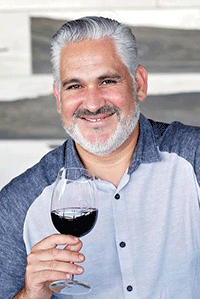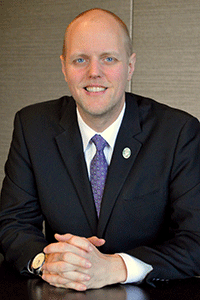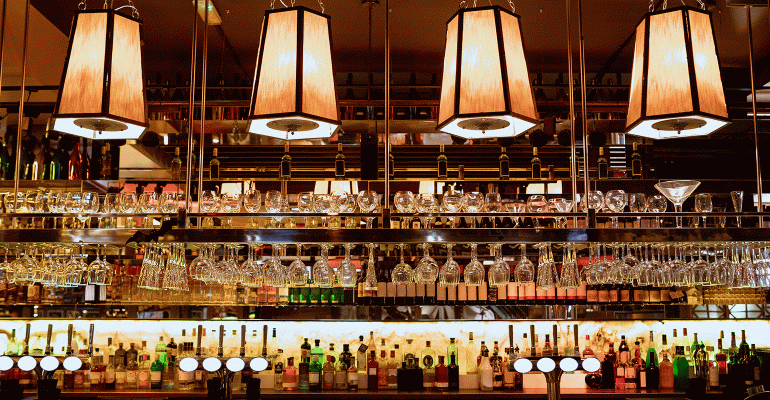Being a beverage buyer in a restaurant affords some rock star status. From spirits, to coffee, wine, tea, beer and kombucha, every producer wants to be featured in the esteemed book o’ beverages. And it is the buyers who hold the keys to those placements. They get the trips, the perks and the acclaim.
Perhaps more importantly, though, is what happens once those products arrive in-house, and who is tasked with serving them. The employees on the beverage team couldn’t be more essential, as they are the ones who lift the products from the page, that make the guests light up with delight, and serve as the buyer’s trusted allies on the field.
Be they sommeliers or bartenders, some of the most sought after positions in a restaurant are on the beverage team. And for those managing the beverage program, it takes a keen understanding of human nature to ensure they have the best people in those roles, and once they are there, to set them up to not only succeed, but to shine.
 “The importance of having staff well-versed in the products offered cannot be overstated,” said Victoria Antilla, left, who now consults, but most recently served as the corporate wine director for Schwartz Brothers Restaurants in Seattle. “While there are the guests who may not think they need recommendations, the reality is that dining out is about the experience, and part of most great experiences is trying something new. Providing that piece of service can only happen if the beverage team understands the products.”
“The importance of having staff well-versed in the products offered cannot be overstated,” said Victoria Antilla, left, who now consults, but most recently served as the corporate wine director for Schwartz Brothers Restaurants in Seattle. “While there are the guests who may not think they need recommendations, the reality is that dining out is about the experience, and part of most great experiences is trying something new. Providing that piece of service can only happen if the beverage team understands the products.”
But to truly succeed, beverage professionals need much more than beverage knowledge.
At Schwartz Brothers, Antilla oversaw a team of five wine managers and eight sommeliers. They became not only the points of distribution of beverage knowledge for the rest of the service team, but also the ones tasked with transmitting the excitement to guests.
“They need to have passion for wine and spirits, yes, but also the belief that wonderful things are meant to be shared,” she said. “They must possess an openness to questions from less experienced staff, and the ability to really listen, to understand what guests are asking for. There is a level of being a translator, as many guests do not understand the terms ‘acidity,’ or ‘residual sugar,' so asking focused questions in a skilled way is a must.”
 Maurice DiMarino, left, beverage and wine manager for Cohn Restaurant Group in San Diego, is responsible for nearly 30 operations in the diverse portfolio. He works directly with the general managers, beverage managers, lead bartenders and sommeliers to ensure that systems and training are in place and that standards are kept high.
Maurice DiMarino, left, beverage and wine manager for Cohn Restaurant Group in San Diego, is responsible for nearly 30 operations in the diverse portfolio. He works directly with the general managers, beverage managers, lead bartenders and sommeliers to ensure that systems and training are in place and that standards are kept high.
When it comes to hiring and promoting, he approaches it holistically.
“I think everyone on the beverage team brings a different skill set,” DiMarino said. “Some might be great at spreadsheets and inventory management, while others are great tasters. Some have a pulse on the vibe, while others might have more creativity. A strong team should consist of those who enjoy being with people, are humble, eager to learn and passionate about their work. Everything else can be taught. It’s hospitality that is the untrainable skill that is truly the most important.”
Since most restaurants can only afford a few people in beverage-focused positions, it’s imperative that responsibilities among the entire front-of-house team are clearly defined.
 “We have three full time floor-working sommeliers, myself included,” said Winn Roberton, left, head sommelier at Bourbon Steak in the Four Seasons Hotel Washington, D.C. “These are unique beverage-only, non-management positions that allow us to mostly focus on the wine. We ask the staff to own the by-the-glass program at a minimum, and when it comes to the 38-page wine list, they can feel free to call a somm. In addition, several servers and bartenders will have a few tried and true ‘pocket wines’ that they sell, and that's a great way to help sales and speed of service.
“We have three full time floor-working sommeliers, myself included,” said Winn Roberton, left, head sommelier at Bourbon Steak in the Four Seasons Hotel Washington, D.C. “These are unique beverage-only, non-management positions that allow us to mostly focus on the wine. We ask the staff to own the by-the-glass program at a minimum, and when it comes to the 38-page wine list, they can feel free to call a somm. In addition, several servers and bartenders will have a few tried and true ‘pocket wines’ that they sell, and that's a great way to help sales and speed of service.
“It's my job to make sure those wines stay in stock, they’re easy to ring in, and easy to find in the cellar when needed,” he added. “We also have a head bartender and a bar manager to take care of spirits, and two dining room captains that take the lead on the whiskey program education. ‘Bourbon’ is in the name of the restaurant, after all.”
Beverage team members are often tasked with aspects of staff training, which gives them a sense of ownership in the program, and creates a stronger bond with fellow team members. Education works in two ways: It creates excitement among the staff, and also ensures a strong knowledge base across various positions.
“The more angles from which a restaurant staff can strategically sell, the more chances of making a sale, and the more impressive the restaurant looks as a whole,” Roberton said. “Imagine if a busser or food runner could confidently recommend a wine, let alone a server, barback or otherwise. That can be impressive and surprising to many guests.”
When appropriate, promoting from within is an effective way to develop great beverage professionals. Each restaurant has its own unique set of systems, its own idiosyncratic culture, and a cadre of regular guests with specific needs, all of which can take years to understand. Staff that not only are technically proficient, but who also embody your concept’s unique sense of hospitality, can serve as role models for the rest of the staff. And knowing there is potential for upward mobility can help keep great people under your roof longer.
At the end of the day, the most important part of any beverage program is a focus on taking care of the guests.
“A passionate, knowledgeable staff is not the golden ticket without the right attitude,” Antilla said. “Develop those that truly want to provide the best experience for the individual guest. A server or sommelier with a high check average, but no returning guests, might be doing you more harm than good.”
David Flaherty has more than 20 years of experience in the hospitality industry. He is a certified specialist of wine, a certified cicerone and a former operations manager and beer and spirits director for Hearth restaurant and the Terroir wine bars in New York City. He is currently marketing director for the Washington State Wine Commission and writes about wine, beer and spirits in his blog, Grapes and Grains.

